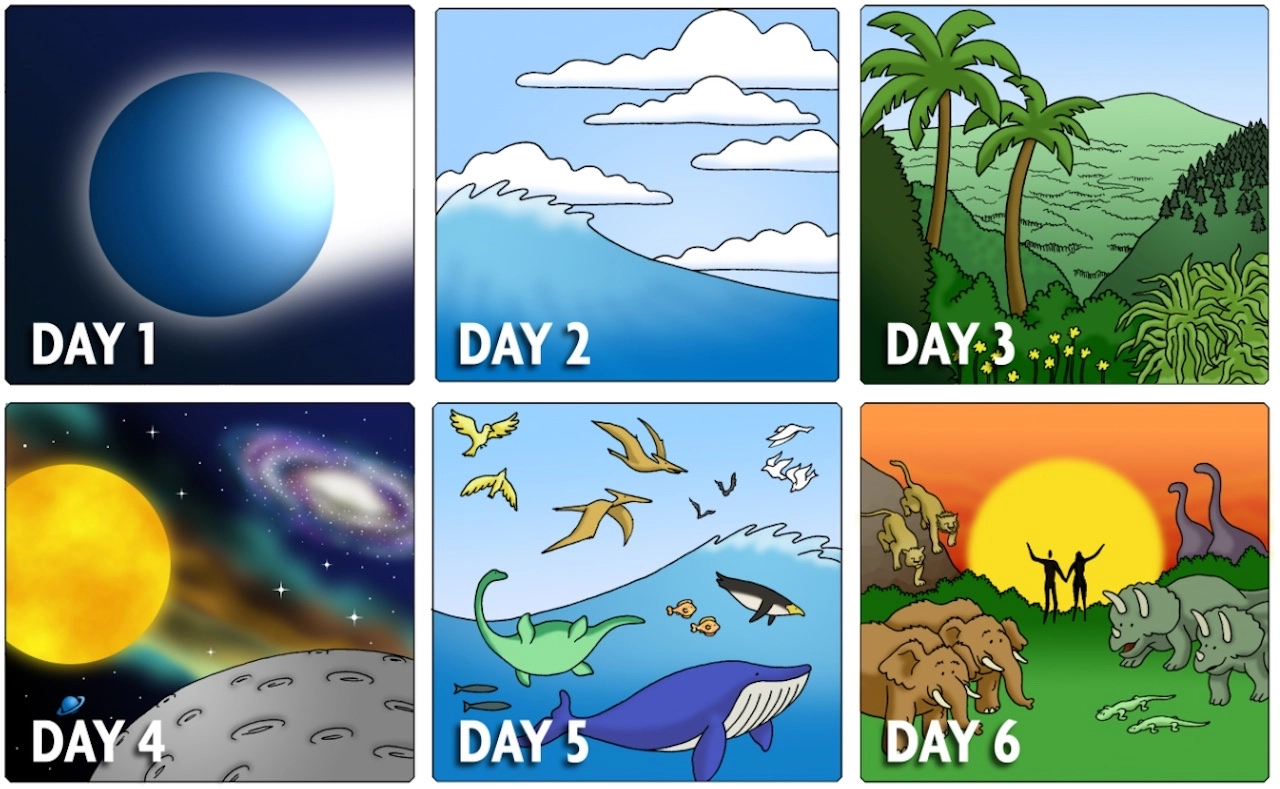The opening chapters of the Book of Genesis unfold a majestic narrative—the creation of the universe, Earth, and all living beings. The account, presented in six days, has been a subject of contemplation, interpretation, and theological exploration for centuries. Let's delve into the Genesis creation story and explore its significance and interpretations.
I. Introduction: The Grand Prologue
Genesis 1:1 sets the stage with a profound declaration, "In the beginning, God created the heavens and the earth." This statement launches the narrative of creation, signaling the origin of all that exists.
II. Day One: Light and Darkness
On the first day, God creates light, separating it from darkness. This symbolic act establishes the fundamental duality and order that will permeate the entire creation. Light becomes a metaphor for goodness and divine presence.
III. Day Two: Sky and Sea
God, on the second day, divides the waters to create the expanse of the sky and the waters below. This separation establishes the domains of the heavens and the seas, emphasizing a sense of order and purpose.
IV. Day Three: Land, Seas, and Vegetation
The third day witnesses the emergence of dry land and the gathering of waters into seas. God then commands the earth to bring forth vegetation—plants, trees, and fruits. This day marks the flourishing of life in its earliest forms.
V. Day Four: Sun, Moon, and Stars
Day four sees the creation of celestial bodies—the sun, moon, and stars. They are assigned roles, not only to mark time but also to serve as signs for seasons, days, and years. This cosmic order reflects divine intent and precision.
VI. Day Five: Birds and Sea Creatures
On the fifth day, God populates the skies with birds and the seas with various creatures. This act of creation introduces the diversity of living beings, each fulfilling its unique role in the interconnected web of life.
VII. Day Six: Land Animals and Humans
The sixth day witnesses the creation of land animals, each according to its kind. However, the pinnacle of this day's creation is humanity. "Let us make mankind in our image," God declares, endowing humans with a special connection to the divine and assigning them stewardship over the earth.
VIII. The Image of God in Humanity
The notion of humans being created in the image of God is a profound theological concept. It speaks to the inherent dignity, worth, and moral responsibility that humanity carries. This divine image sets humans apart, emphasizing their unique role in creation.
IX. Day Seven: Rest and Reflection
The seventh day is a day of rest for God, not because of fatigue but as a deliberate act of cessation from creative work. This day becomes a model for the Sabbath—a sacred time of rest and reflection that echoes through various religious traditions.
X. Interpretations and Theological Significance
The Genesis creation account has sparked diverse interpretations. Some view it as a literal, chronological sequence of events, while others see it as a poetic, symbolic narrative. Theological discussions often revolve around questions of science and faith, the nature of time in God's perspective, and the theological implications of human stewardship.
XI. Lessons from Genesis: Stewardship and Appreciation
The Genesis creation story carries timeless lessons. It calls humanity to recognize the inherent goodness of creation, embrace stewardship, and live in harmony with the natural world. It invites contemplation on the interconnectedness of all life and the sacred responsibility humans bear as custodians of God's creation.
XII. Genesis as a Source of Reflection
The Genesis account of creation serves as a source of reflection, inspiration, and theological exploration. It invites individuals to ponder the mysteries of existence, the purpose of humanity, and the divine artistry woven into the fabric of creation. Beyond scientific inquiry, the narrative continues to inspire awe and wonder, inviting believers to appreciate the sacredness of the world in which they dwell.




